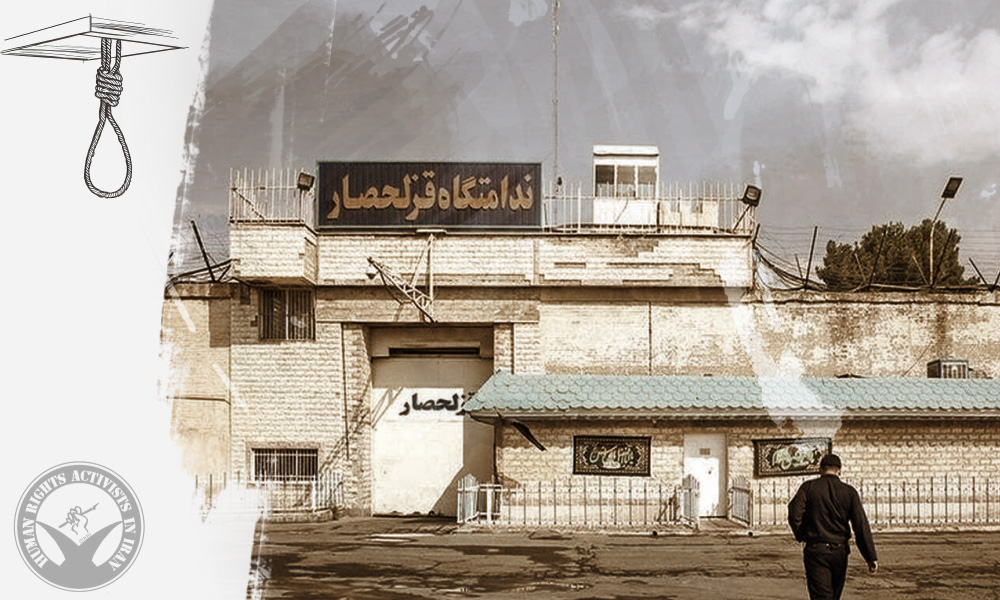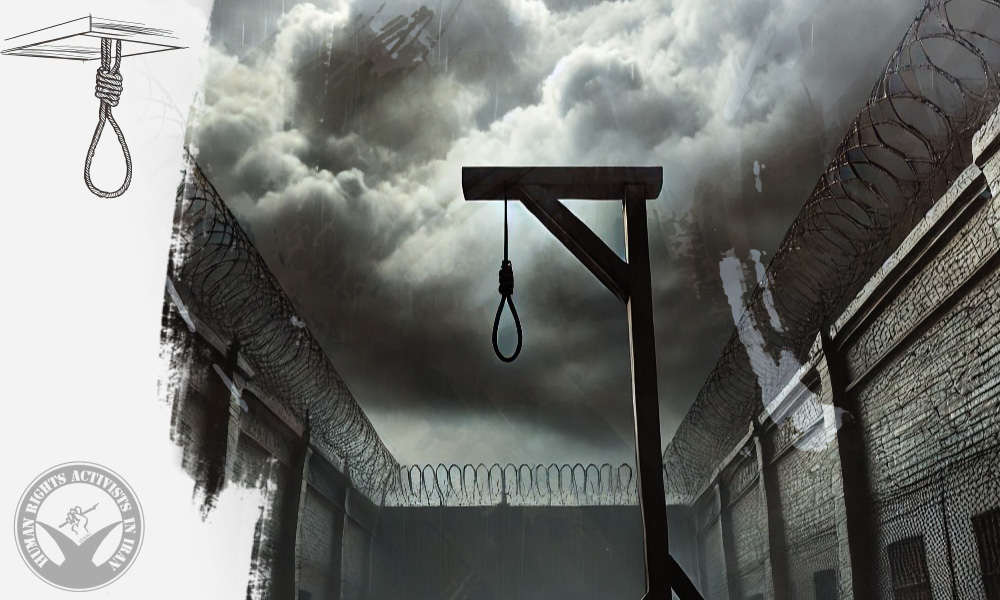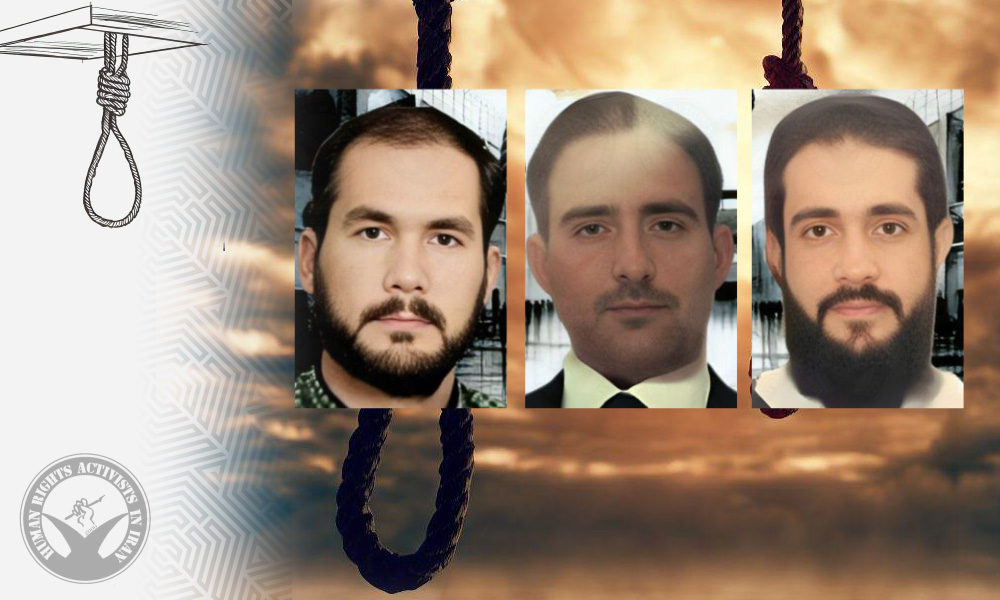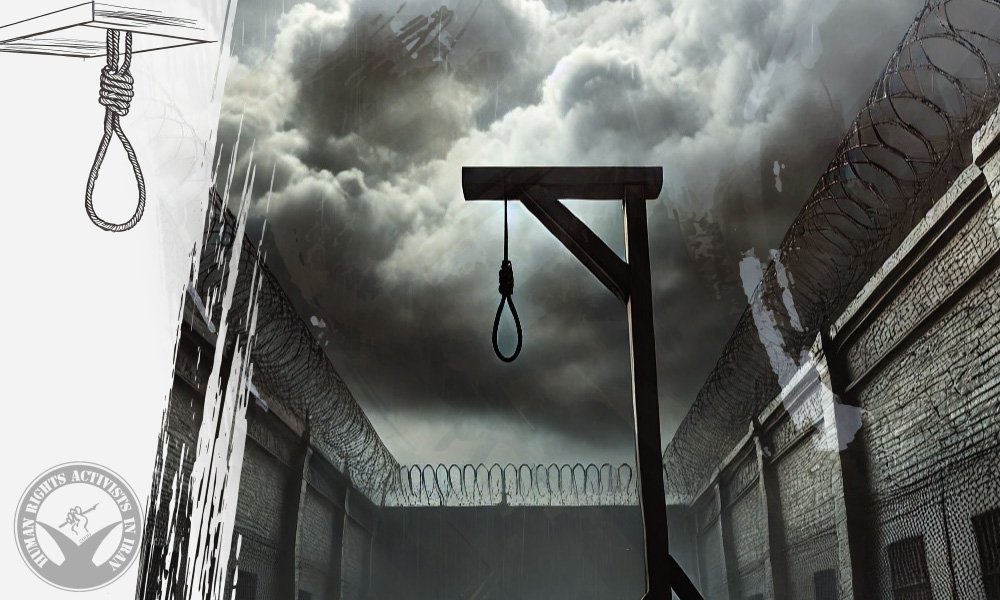HRANA News Agency – Four prisoners, identified as Abdolrahim Ghanbarzahi Gorgij, Eido Shah-Bakhsh, Abdolghani Shahbakhsh, and Soleiman Shahbakhsh, who have been sentenced to death in a joint case, are currently held in Ghezel Hesar Prison in Karaj.
The death sentences of Eido, Abdolghani, and Soleiman Shahbakhsh have already been upheld by the Supreme Court, and the request for a retrial by Abdolrahim Ghanbarzahi Gorgij was recently rejected by the same authority. Ghanbarzahi Gorgij has been held in solitary confinement for over 45 days. Among them, Soleiman Shahbakhsh was under 18 years old when the judicial case was initiated.
On April 9, 2025, Branch 9 of the Supreme Court, presided over by Judge Ghasem Mazinani, officially rejected the retrial request submitted by death row prisoner Abdolrahim Ghanbarzahi Gorgij. The request had been formally filed on February 7, 2025. Prior to this, the Supreme Court had upheld the death sentences of the other three defendants—Eido, Abdolghani, and Soleiman Shahbakhsh—and referred their cases to the Tehran Security Prosecutor’s Office for enforcement.
Reza Salehiyeh, an attorney and human rights activist, stated: “Mr. Ghanbarzahi Gorgij was pressured by prison officials last February to sign a repentance letter. After he refused, saying he would not accept it under coercion, he was sent to solitary confinement as punishment. Prison officials claimed the move was due to a dispute with inmates convicted of common crimes. He has been held in isolation since late February, raising concerns about the imminent execution of his sentence.”
Soleiman Shahbakhsh, one of the defendants, was born in October 1996 and was under 18 at the time of the alleged events. Nevertheless, his minor status was not taken into consideration during the trial or in the sentencing process, despite Iranian domestic laws and international commitments requiring special judicial procedures for minors.
According to attorney Salehiyeh, the retrial request for Mr. Ghanbarzahi Gorgij faced significant delays, with only one opportunity for in-person follow-up at the Supreme Court’s Branch 9 office over several weeks. Despite the end of the Nowruz holidays, neither he nor other lawyers received a copy of the ruling until its official issuance on April 9.
Ghanbarzahi Gorgij’s family asserts that his case was handled with violations of fair trial principles and that the confessions used against him were obtained under torture and coercive interrogations. They demand an immediate halt to the execution process and a fair review of the case.
The case of the four prisoners was referred to the Tehran Security Prosecutor’s Office for enforcement in late October 2024, and judicial procedures had already moved into the sentence enforcement phase long before. The death sentences, issued on February 4, 2024, by Branch 28 of the Tehran Revolutionary Court presided over by Mohammadreza Amouzad Khalili, were based on charges of “baghi (armed rebellion) through membership in anti-regime groups” and “armed uprising.” These sentences were later upheld by Branch 32 of the Supreme Court.
In the initial stages of the trial, the individuals were also accused of participating in armed operations that resulted in the deaths of IRGC and police forces between 2007 and 2009. However, the preliminary court found some of these charges unsubstantiated and issued acquittals.
Since the first arrests in this case in 2012, the legal process has been marred by disruptions and prolonged uncertainty. Some defendants, including Eido and Abdolghani Shahbakhsh, were rearrested in 2016 after initially being acquitted by the Zahedan Revolutionary Court—a move reportedly triggered by security agencies objecting to the acquittals.













